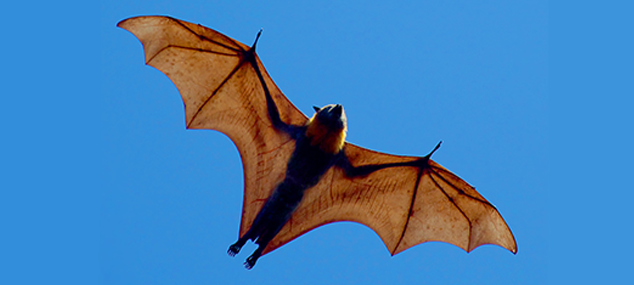
Northern NSW residents are reminded to avoid handling or touching injured or dead flying foxes and microbats to protect themselves against infection from viruses including Australian bat lyssavirus, which is very dangerous to humans.
Director of North Coast Population and Public Health, Dr Valerie Delpech, warned against attempting to handle an injured or distressed flying fox or microbat, which are particularly active during spring and summer.
“Call your local wildlife rescue service if you see a bat in distress,” Dr Delpech said.
Contact details for local wildlife care groups can be found at the NSW Department of Planning and Environment’s wildlife rehabilitation website (search for “Licensed wildlife rehabilitation provider in NSW”), or download the International Fund for Animal Welfare (IFAW) wildlife rescue app.
“Always avoid handling any flying foxes or microbats, dead or alive. If you see a dead flying fox in a public area, contact your local Council and ask them to dispose of it,” Dr Delpech said.
“You should only handle flying foxes or microbats if you have been trained by a reputable wildlife organisation, vaccinated against lyssaviruses and use appropriate personal protective equipment.
“If you or your children are bitten or scratched by a flying fox or microbat, wash the wound immediately and thoroughly with soap and water for at least 15 minutes, and apply an antiseptic with anti-virus action, such as povidone-iodine. Seek medical attention as soon as possible to assess whether you are at risk of infection.”
NSW Public Health Units will work with your doctor to assess your risk and where indicated, will arrange for rabies post-exposure treatment to be delivered to your GP or hospital. The post exposure treatment is crucial for people bitten or scratched by bats because there is no effective treatment once the symptoms of Australian bat lyssavirus commence.
In the event of an extreme heat stress or starvation event affecting bat populations, people should follow the directions given by wildlife rescue coordinators and not attempt to assist bats unless vaccinated, trained and wearing protective equipment.
For more information regarding safely handling flying foxes and microbats, visit the NSW Health website.